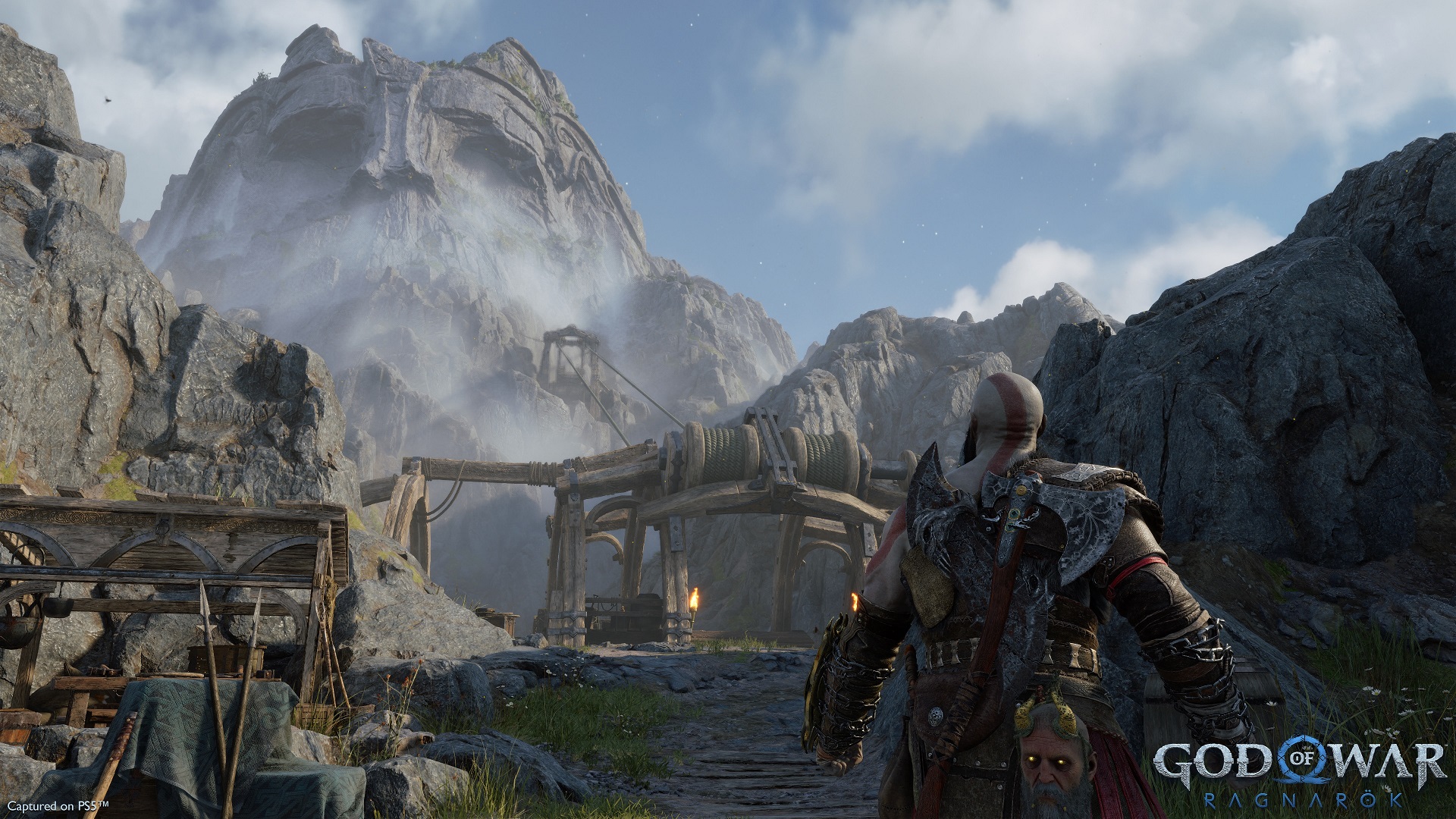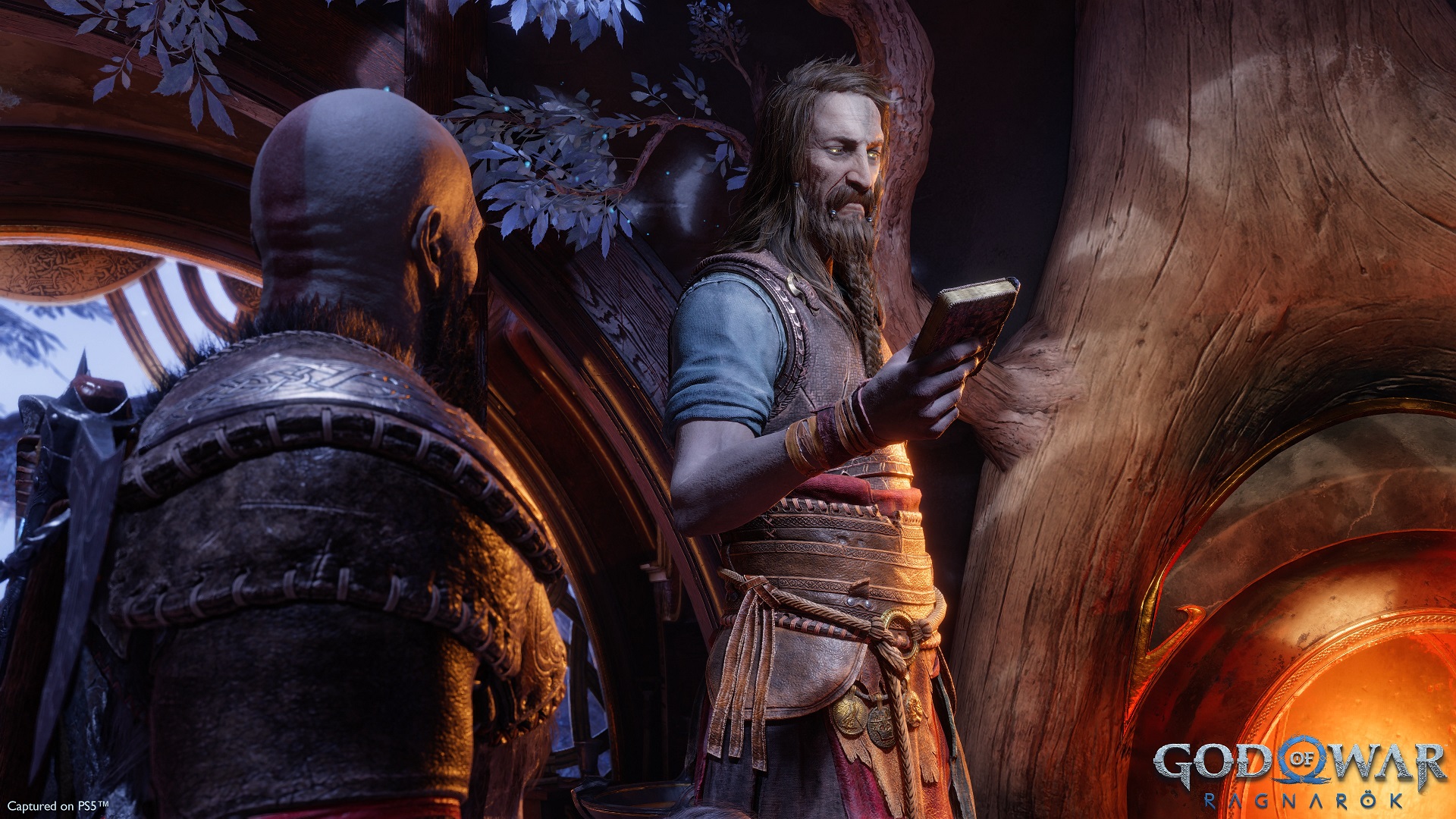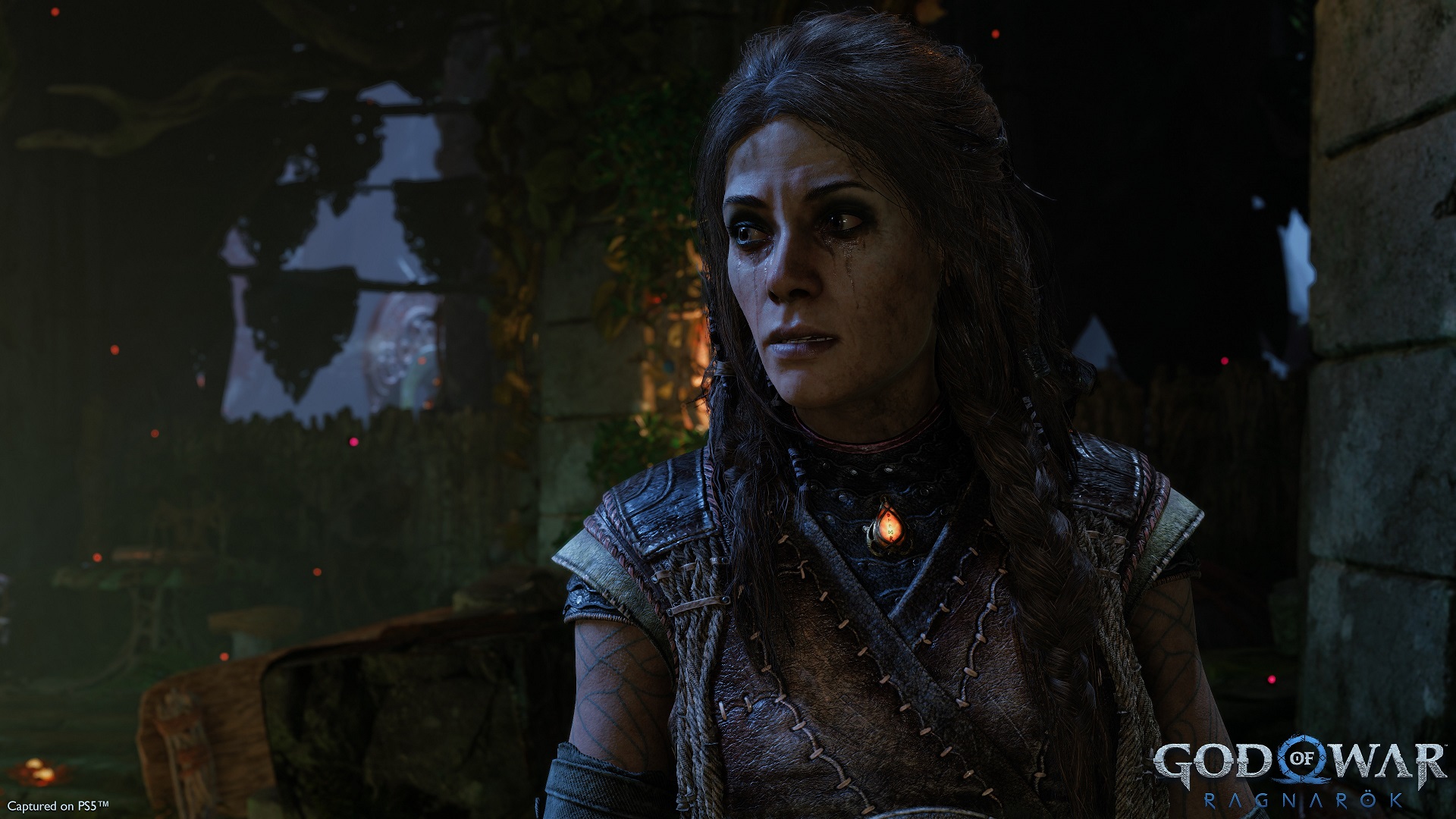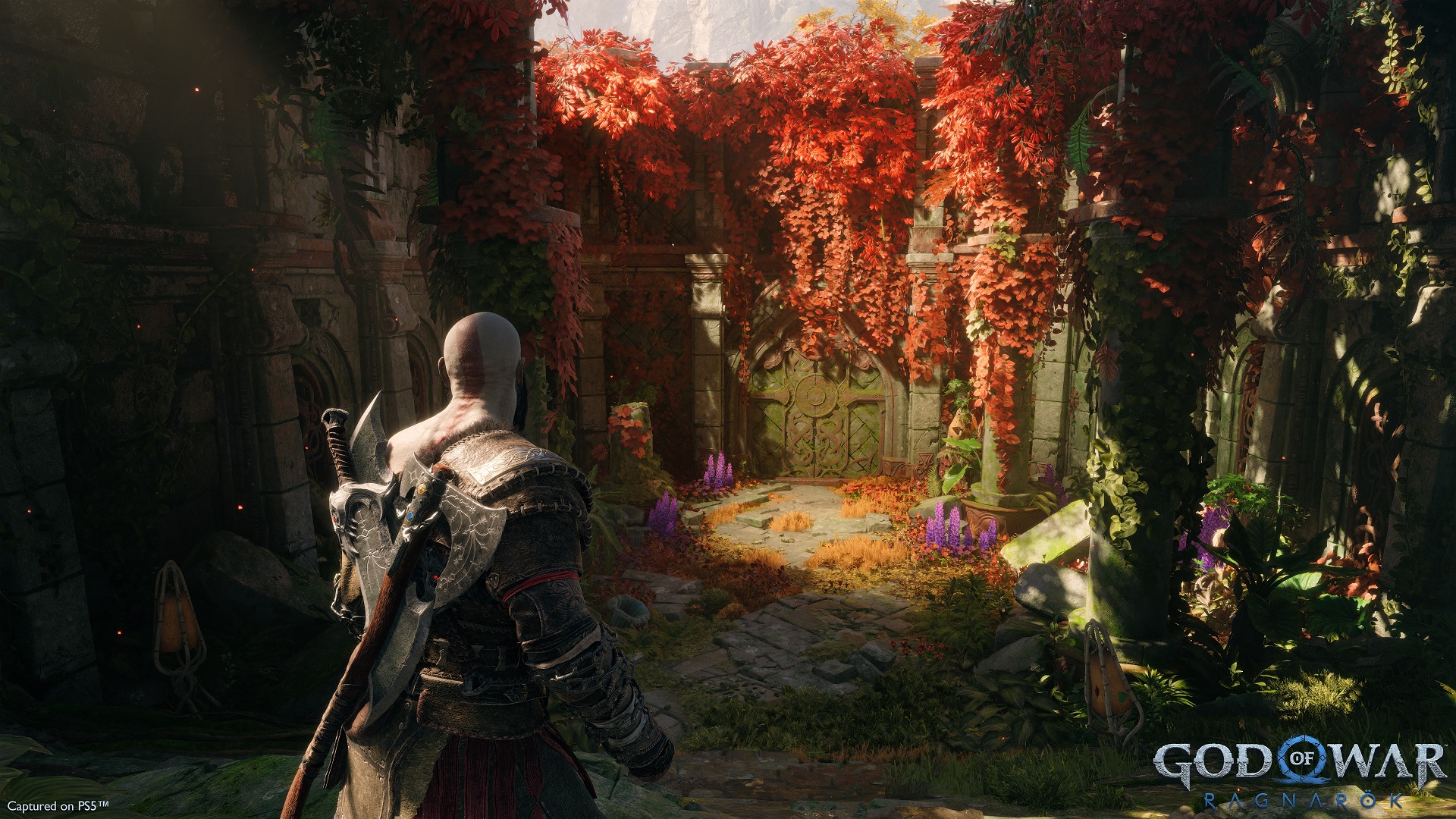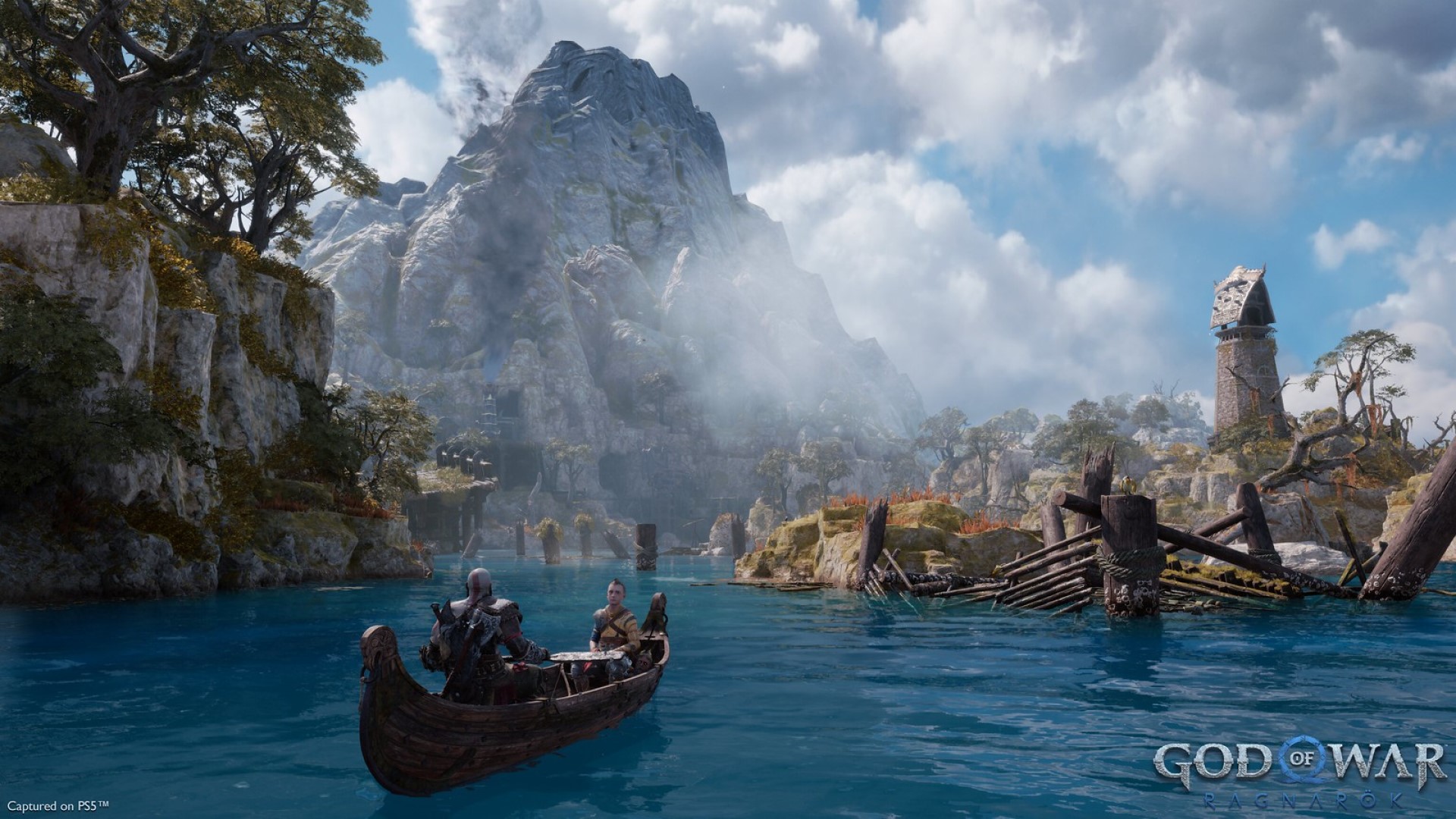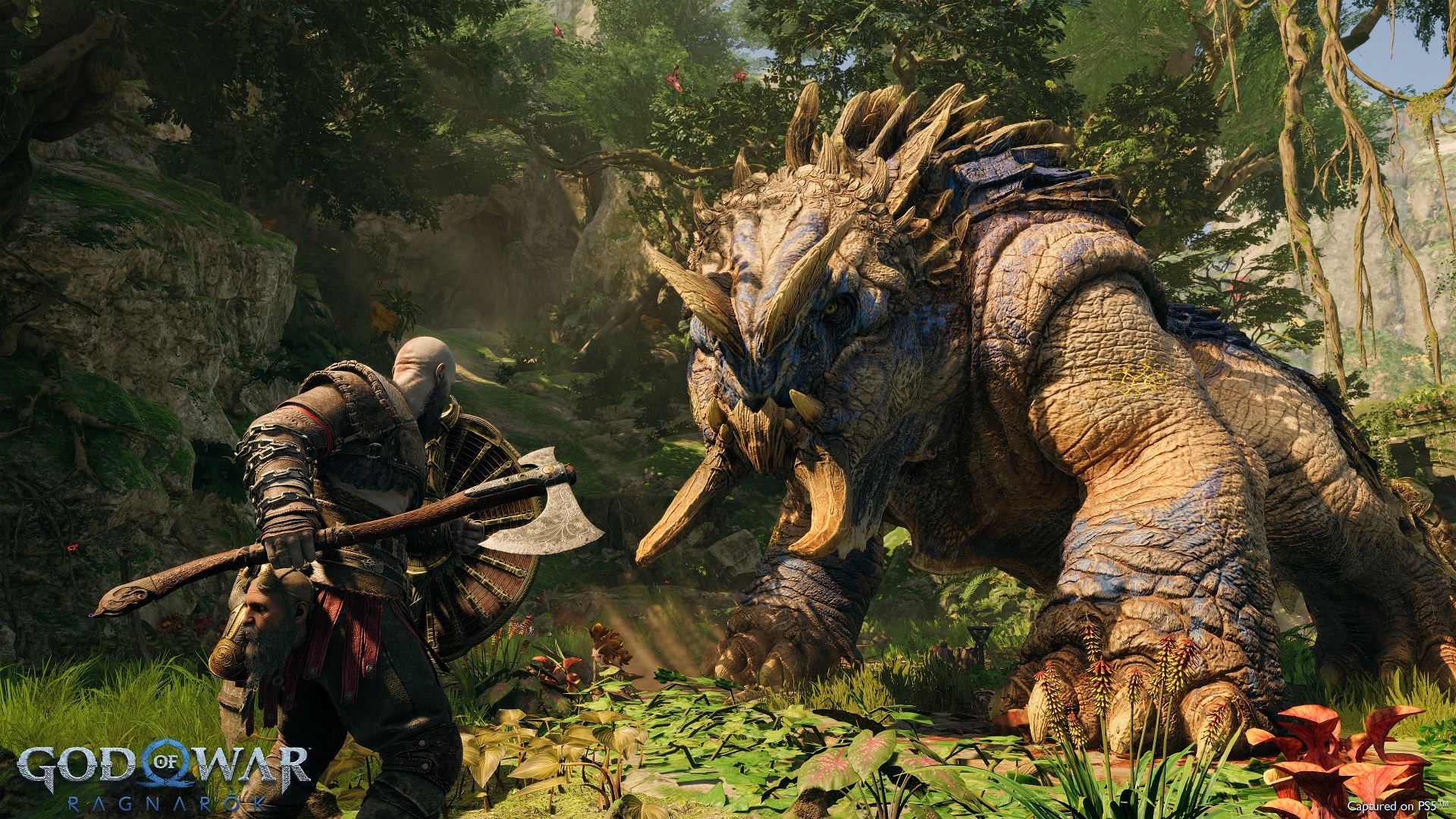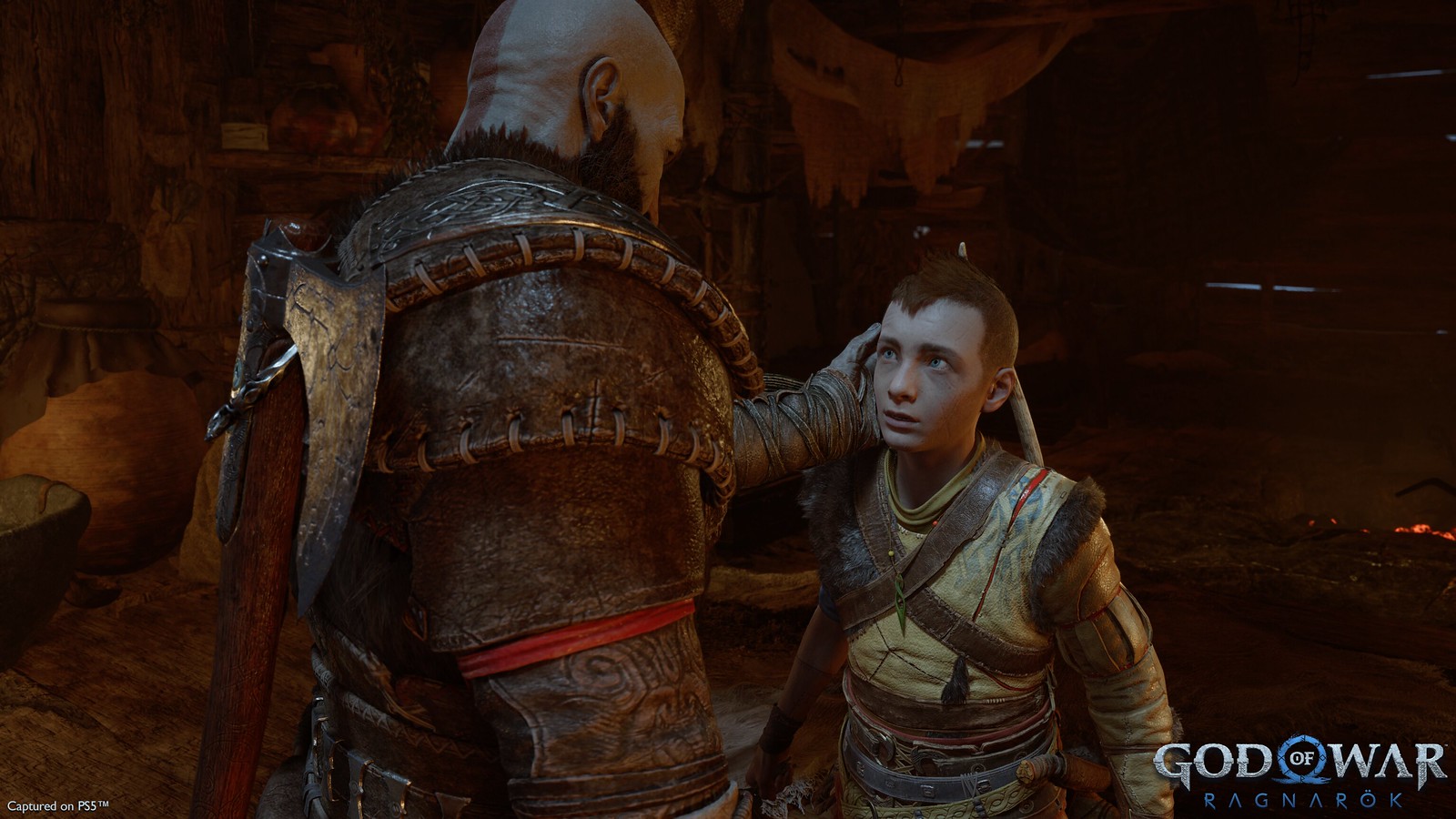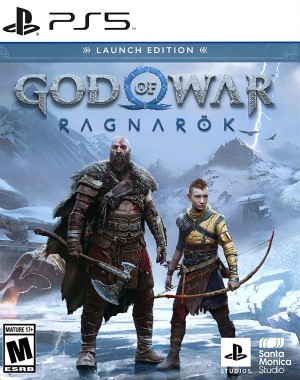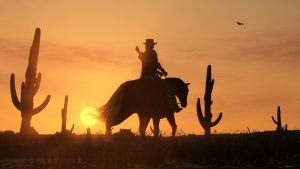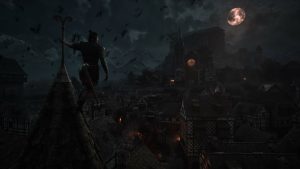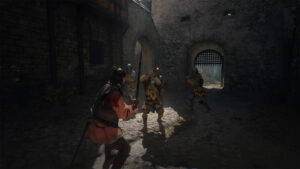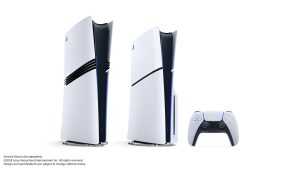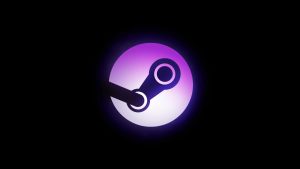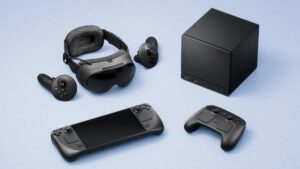
The God of War franchise has always had an important place in Sony’s first party lineup, be-it the absolutely amazing original on the PS2 or the excellent-handheld experience that was Chains of Olympus on the PSP. So when PlayStation shifted its first-party output to be the pinnacle of single-player cinematic experiences, God of War needed to be rebuilt from the ground up to cater to the newer Sony audience.
And suffice it to say, Sony Santa Monica delivered big time with God of War 2018, a reboot that respected the franchise’s past while also introducing radical new changes with this iteration. Combining the series hallmark over-the-top action with a sincere narrative, God of War 2018 cemented its place as one of the very best games of the eighth generation. Those familiar with the game’s narrative would know that it ended with various teases for the sequel, and God of War Ragnarok is here to continue the adventures of the iconic father-son duo.
Much like the original, God of War Ragnarok is an absolute beast when it comes to graphics – and the game excellently builds upon the strengths of the first chapter with an improved visual presentation all around. It’s also the first game in the series to have a multi-platform release at launch, so what are the enhancements that PS5 owners get? With all of that in mind, we present a complete graphics analysis of God of War Ragnarok.
Graphical Modes and Performance
Despite featuring a plethora of computationally taxing effects that are all firing at any given time alongside chaotic combat encounters, God of War 2018 featured a rock-solid performance that rarely faltered from its target cap of 30fps. We finally got to experience the adventure at a higher frame rate with the recently released PC port and the PS5 patch – but thankfully, Ragnarok provides a plethora of options right from the get-go.
Players on the PS5 get access to 4 different graphical profiles. The first one favours resolution as it targets for 30 fps at a resolution of 2160p. Favor performance will knock down the resolution to a dynamic 4K, but instead the game will run at a higher 60fps.
Those with a compatible HDMI 2.1 display with 120Hz support can also choose the third mode, which would sync the action in accordance to the higher refresh rate – but the frame-rate would still remain locked at 60fps. Lastly, there’s the sweet middle ground between graphics and performance – with the 4K 40fps mode but that also requires a compatible 120Hz display for functioning properly.
For the purpose of this feature, we are only showcasing the performance mode.
What’s New and The Rendering Pipeline
By all accounts, God of War is still one of the best-looking games on the market – despite it being more than four years old at this point. And that praise can largely be attributed to Sony Santa Monica’s excellent understanding of the PS4 hardware. God of War featured best-in-class textures and post-processing effects alongside stunning art direction, culminating in a crisp visual presentation all while boasting a grand sense of scale with every stage and boss fight.
This sequel is the first time that the series is going cross-platform at launch, so it stands to reason that the renderer and the engine should be able to scale according to the target hardware – with PS5 obviously being the premier platform for the best experience. The core visual presentation remains the same across both platforms, and Sony Santa Monica has focused on providing PS5 users better gameplay experience through the use of multiple graphical options, higher frame rates, and the like. There’s also full support for other PS5 centric features like haptic feedback and 3D audio – which really come together to elevate the playing experience on another level.
But when talking about nitty-gritty technical details, God of War Ragnarok doesn’t seem to bring anything really new to the table in terms of rendering techniques, it has certainly improved on every aspect of the experience – and all of it looks much better on the PS5. Everything from the hair quality to particle effects to environmental assets has seen a considerable uptick in quality, and the game looks much cleaner as a result.
Character Models and Animation
As mentioned previously, the character models in God of War Ragnarok are obviously top-tier stuff – thanks to incredibly high polycounts throughout. The skin meshes are also finely detailed, and have appropriate surface texturing. When inspected up close, we can see that the character model on Kratos has plenty of wrinkles throughout his face – which is impressive from a graphical standpoint, but it also doubles as a way of showing that our raged protagonist has grown old and weary from all that he has been through.
The clothes and armor are also made up of physically-based materials, and the armor itself has independent physics from the character model – meaning they can also sway as Kratos moves and dodges enemy attacks. The hair rendering system was also pretty impressive with proper physics, and we can see this specially pronounced during sections with Freya.
It’s an impressive presentation, and God of War Ragnarok puts all that goodness into the next gear with its improvements. The improved polygon count makes a huge difference, and while it isn’t so obvious at first – you can actually notice the differences when pitting the two side-by-side. Take for instance, Kratos’ character model – and you can see that it just has so much more granular detail than the 2018 counterpart. The beard also looks a lot better, with individual strands of hair having a lot more definition than before.
Of course, it applies to all character models – and you can see these differences and improvements in the case of Atreus, Freya, and others as you meet them throughout your journey. In a similar vein, asset quality has also seen an uptick in the case of armor and other gear – and the engravings on weapons and textures on clothes are all more visible in the sequel.
Over on the animation side of things, God of War Ragnarok seems to be reusing a lot of the same animation data as the original – which also became a point of minor controversy during early gameplay showings. But as we highlighted then as well, reusing perfectly functional data isn’t a sign of laziness but rather a judicial use of development resources. Sure, there are many new moves that Kratos can perform with his weapons – and each of them is animated with astute attention to detail.
Each attack still connects with the enemy on a surface level, and Kratos has the appropriate sense of weight to every move that he performs. Further enhancing these animations is the excellent use of DualSense vibrations on the PS5, which help in translating the intensity of these actions through varied vibrations and sensations through the haptics.
Environment Quality
Much like the character models that we discussed before, God of War 2018 featured what was at the time an astounding level of detail in the environments. The artists over at Sony Santa Monica combined state-of-the-art technology with creative art design to create worlds and realms that feel both fantastical and realistic.
The game also featured some decent environmental destruction, as wooden planks, buckets, and other objects would be smashed to bits and pieces after being hit. Specific sections like the Baldur boss fight featured extensive destruction, but those were mostly set-pieces and relied on pre-calculated physics and effects to deliver a cinematic experience. Additionally, walking on snow would result in terrain deformation that would remain sustained for a while – and walking past vines and grass would result in them bristling against your movement which also looks pretty realistic.
Over on God of War Ragnarok, we can notice that there are some differences and improvements with regards to environment rendering. The first and most obvious is how prettier the water looks when compared to the original. The water utilizes higher-quality cubemap reflections all while having an element of transparency which makes it look a lot more realistic as a result. And yeah, walking over snow-capped mountains and surfaces still leave deformation trails.
Other changes are a lot more subtle, though keen-eyed fans would be able to notice them nevertheless. The texture quality on the terrain is a lot better, and you can see that everything from planks of wood to muddied ground has a lot more definition and looks a lot crisper. The starting islands also feature a lot of foliage ranging from grass to palm trees, and some of them react to your character’s presence and the frequent dance of blades that happens during combat encounters. Sure, they are not as visible or effective to the visual presentation as in other games – but these subtle touches do enhance the experience nevertheless.
Environmental destruction is still pretty limited, and only a select few objects can be destroyed or affected through your attacks mid-fights. Sure, there are still plenty of scripted moments where destruction happens – but the same level of chaos doesn’t translate over to your usual fights. While that could be a direct result of the game being a cross-gen product, it’s a tad bit disappointing nevertheless.
World Streaming
While God of War 2018 wasn’t an open-world game by any means, the realms are pretty expansive and boast a grand sense of scale. The environments are filled to the brim with props and details, all of which culminate to make these places feel lived-in despite being of fantasy nature. Much like most linear games, God of War used a lot of smoking mirrors for achieving that sense of grandeur such as pre-rendered backgrounds or low-poly count models among other things. To retain the sense of being in a one-take movie, God of War refrained from using loading screens. Instead, fast travel takes place through Mystic Gateways where traversal through realms masks any and all loading that happens in the background.
World streaming in God of War Ragnarok takes place in pretty much the same way, but it’s important to note that these aren’t any criticisms. Sure, you might be able to notice some prettier peaks off in the distance or environments that have more props scattered throughout, but for the most part – it’s the same story throughout.
Lighting, Shadows, And Reflections
Switching gears over to lighting, God of War Ragnarok continues to showcase iterative upgrades over God of War 2018. The original used a lot of dynamic lighting, which allows for a pretty realistic and reactive experience through and through. Many of these sources have bounce effect on lights as well, which further accentuates the simulation of being in a real space that’s governed by real-world physics. But given the linear nature of the game, there is also pre-calculated lighting data in some parts too, which combine with the dynamic lights for the complete experience.
God of War Ragnarok also utilizes a lot of dynamic lights, complete with light bouncing from surfaces. There’s also self-occlusion on objects, so a body can cast its reflections upon itself as well. Transparent objects like water and bubbles use the same cube maps as before, though they have higher quality for the sequel. Surfaces reflect like in accordance to the properties of the material, so a glass-based object would bounce more light than something like a stone wall or an axe. It’s something that was present in the original, and works to great effect for the sequel as well.
Shadows are casted by dynamic light objects, and they boast a great level of fidelity as well. Objects from the environment also cast appropriate shadows on Kratos, which gives the character a sense of belonging to the game world. Ragnarok also features the same shadow maps implementation – and it works well here as well. We also get to see volumetric smoke alongside volumetric shafts of lights that pierce through openings in the environments.
God of War Ragnarok doesn’t use any advanced global illumination techniques like ray-tracing in its lighting pipeline, and everything from shadows to reflection utilizes the same eighth-generation techniques with some enhancements in terms of the actual quality. While the absence had previously been confirmed by the developers – it’s absence from the graphical feature set when other Sony first-party titles GT7 are using them to great effect can seem a bit disappointing.
Post-Processing Effects
While great texture work and accurate lighting are the foundations of any great visual showcase, post-processing effects are what ultimately make those promising elements stand out. Suffice to say it, the developers over at Sony Santa Monica know this very well – and God of War Ragnarok uses a bevy of graphical bells and whistles when it comes to the post-processing pipeline.
Much like the original, Ragnarok features a ton of alpha particles that swarm the screen at any given time. Everything from a slam to a strike emits a slew of alpha particles, and the environment itself is peppered with snow particles covering the entire viewpoint – and each of these particles has a higher resolution and polycount than the original which results in a cleaner look all around.
As for the anti-aliasing, God of War 2018 featured a TAA implementation – which is a great way to upscale any given image, but it also comes with a downside that the image can end up feeling soft with some visible artifacting around surface edges. Even when the game was ported over to PC, there was no way to change that up to MSAA or any other implementation.
Coming to Ragnarok however, we can see that the image looks pretty crisp all around with little to no shimmering artifacts. This leads us to assume that Sony Santa Monica has replaced its TAA implementation with what looks to be MSAA – at least on the PS5. It needs to be noted that this is just speculation that we are drawing out, and it could be TAA for all it’s worth.
Texture filtering is also an important part of the visual presentation and from the looks of it – we suspect that it retains the same 16x anisotropic filtering option that we saw in the original. The sequel also makes heavy use of motion blur – which is of the per-object flavor alongside depth of field to give it the cinematic feel that we love.
Conclusion
Ragnarok builds on its predecessors in several ways making it one of the best-looking games on the PS5. Does it utilize the full potential of the PS5? No. This is down to the fact that this is a cross generation game but what we have here is still an excellent looking title that sets the visual benchmark for action-adventure games.








